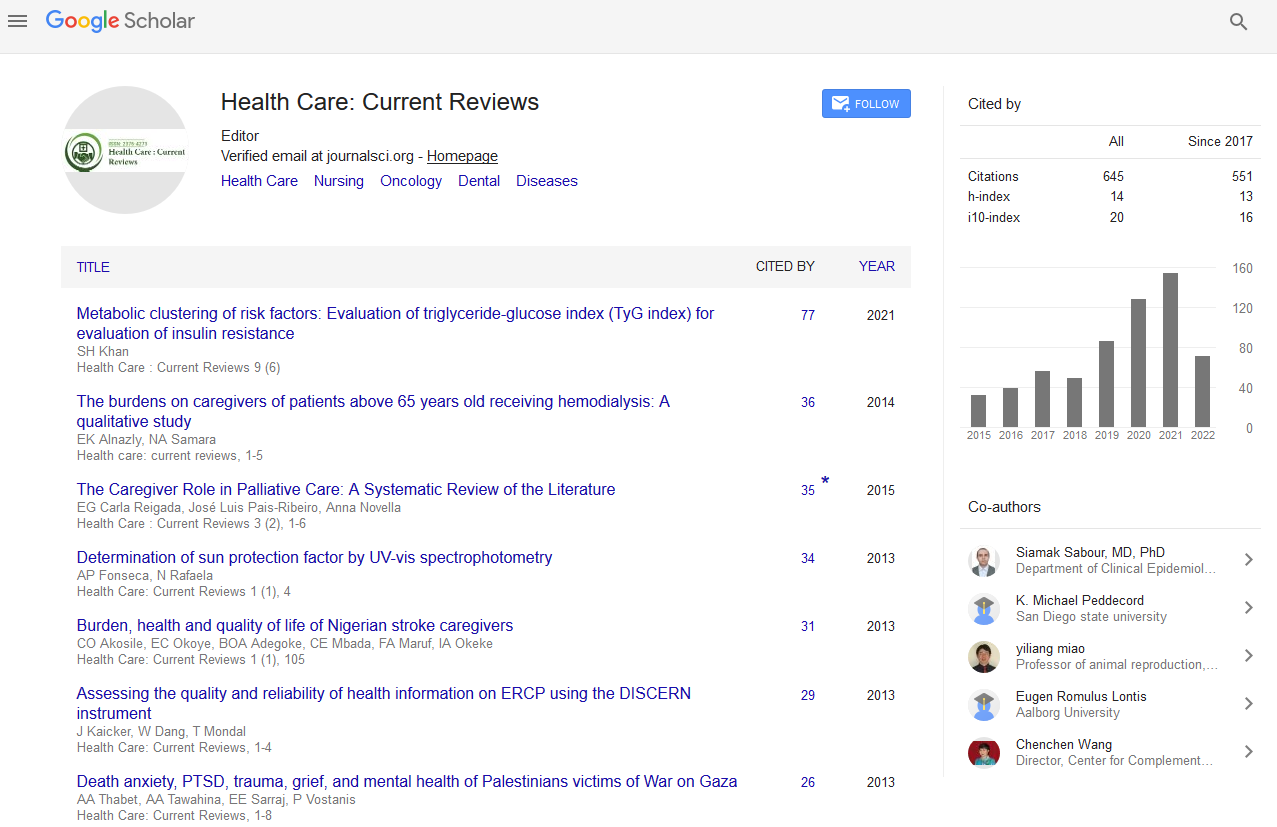PMC/PubMed Indexed Articles
Indexed In
- Open J Gate
- Academic Keys
- RefSeek
- Hamdard University
- EBSCO A-Z
- Publons
- Geneva Foundation for Medical Education and Research
- Google Scholar
Useful Links
Share This Page
Journal Flyer

Open Access Journals
- Agri and Aquaculture
- Biochemistry
- Bioinformatics & Systems Biology
- Business & Management
- Chemistry
- Clinical Sciences
- Engineering
- Food & Nutrition
- General Science
- Genetics & Molecular Biology
- Immunology & Microbiology
- Medical Sciences
- Neuroscience & Psychology
- Nursing & Health Care
- Pharmaceutical Sciences
Audit of electronic discharge summaries from 3 different tertiary hospital departments: A retrospective analysis of timeliness and quality
10th Asia Pacific Global Summit on Healthcare
March 12-14, 2018 Singapore
Keith Potent
Monash University, Australia
Scientific Tracks Abstracts: Health Care Current Reviews
Abstract:
Statement of the Problem: Electronic Discharge Summaries (EDSs) are a crucial process in facilitating a safe and effective clinical handover yet it is often the most junior doctors who author the EDSs. Australia�??s National eHealth Transition Authority have defined the criteria for fields that constitute an EDS. The Australian Commission on Safety and Quality in Health Care (ACSQHC) have created an evidence-based self-evaluation toolkit for hospitals to assess their EDSs performance. This audit assessed the quality and timeliness of EDSs.Methodology & Theoretical Orientation: EDSs were assessed using a combined standard based on the self-evaluation toolkit and XX Hospital policies. A retrospective series of 40 finalised EDSs were selected consecutively, as recorded in the iCM database, from each of the General medicine, General surgery, and Mental health departments of XX hospital from 1st April 2012 until the required limit was met. EDSs were excluded if information was suppressed, the discharge summary was of a deceased patient, if the discharge summary had not been finalised, or if the date of completion was not in the period of collection.Findings: Average time for EDSs completion from discharge: General Medicine (1 day), General Surgery (4 days), Mental Health (9 days). Of the 15 quality components, five components (page length, destination on discharge, alerts, education, and recommendations) were less than 70% compliant, seven components (GP details, problems/diagnoses, investigations, examination findings, medications, adverse reactions, and plans/services) 2839 (70-97.5%) EDS were compliant, and for three components (medical officer, encounter summary, and medical history) 40 (100%) of the EDSs were compliant.Conclusion & Significance: Mismatch between value of timely and quality production of EDSs and education for junior doctors may cost hospitals and patients�?? time and money.Significant areas of improvement were identified using ACSQHC�??s self-evaluation toolkit. Department specific training will give clearer guidance to junior doctors.
Biography :
Potent is currently a PhD candidate in Translational Research at Monash University, Australia. After completing undergraduate degrees in Mathematics and Chemistry, Dr Potent completed his medical degree. He is a practising doctor in Queensland and a keen advocate of patient safety via appropriate clinical communication and handover.
Email:keith_potent@hotmail.com


